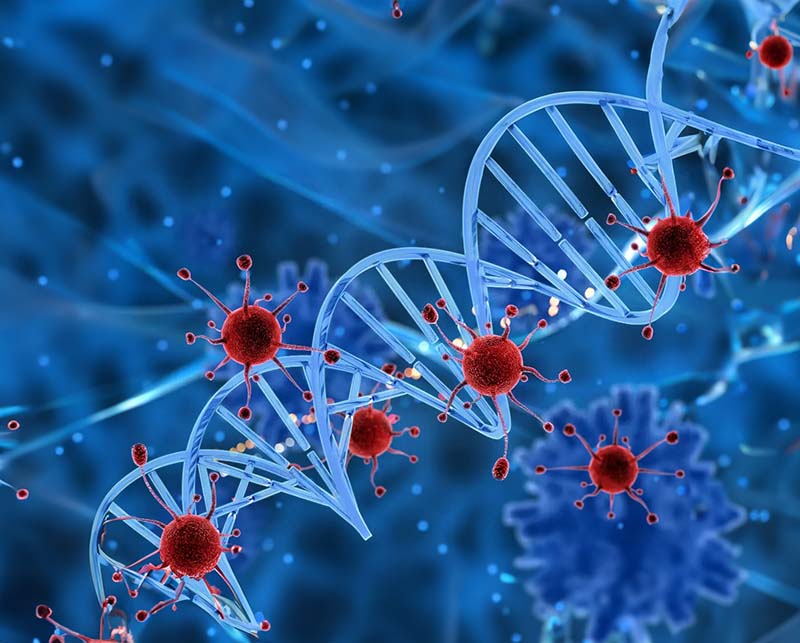Explore broccoli’s weight loss potential with our comprehensive analysis. In the article ‘Does Broccoli Help You Lose Weight?’, we meticulously review the scientific evidence supporting the role of this nutrient-rich vegetable in effective weight management. We invite you to understand how incorporating broccoli into your diet can significantly contribute to your weight loss and health goals.
Does Broccoli Help You Lose Weight?
Broccoli is really good for weight loss efforts. This non-starchy vegetable stands out for being low in calories yet high in fiber, a combination that’s ideal for managing weight. Fiber is particularly noteworthy because it slows digestion, keeping you feeling full for longer. This can naturally reduce your inclination to reach for high-calorie, processed foods.
Additionally, broccoli brings more to the table than just fiber. It has a significant thermic effect of food (TEF), which means consuming it can boost your metabolic rate. This is a less commonly known benefit of fiber-rich plant-based foods like broccoli.
An important aspect of obesity is its association with chronic inflammation. Here, broccoli’s role is twofold. The antioxidants found in cruciferous vegetables like broccoli can target this inflammation. Furthermore, these vegetables may positively impact insulin sensitivity and appetite levels, both crucial in weight management.
While research is ongoing, preliminary studies suggest that compounds in broccoli and similar vegetables might slow down the growth of fat cells. This potential effect opens up exciting avenues for future research in the realm of weight management and obesity prevention.

How Does Broccoli Help in Weight Loss?
Broccoli is a powerhouse when it comes to aiding weight loss, and it’s an essential component of a well-rounded, nutritious diet. While it’s crucial to understand that weight loss involves various factors including diet, exercise, stress management, and sufficient sleep, broccoli offers specific benefits that contribute to weight management.
Firstly, broccoli is a low-calorie food, with just 50 to 65 calories per cooked serving and around 39 calories per 100 grams. This makes it an ideal choice for those looking to reduce their calorie intake without sacrificing volume or nutrients.
The dietary fiber content in broccoli, about 3.3 grams per 100 grams, is particularly noteworthy. Fiber absorbs water, which increases the volume of food in your stomach. This leads to a prolonged feeling of fullness, reducing the need for mid-meal snacking and aiding in appetite control.
Vitamin C, abundantly found in broccoli, isn’t just for boosting immunity or improving skin and hair health; it also plays a role in fat burning. Furthermore, broccoli’s vitamin K content is instrumental in metabolizing glucose and fats, particularly aiding in reducing belly fat.
Broccoli’s carotenoids, natural plant compounds, are another key player in weight management. They help stimulate fat burning, contributing to weight reduction efforts.
Lastly, with a water content of 90%, broccoli not only supports a healthy metabolism – crucial for efficient calorie burning – but also promotes hydration, an often overlooked aspect of weight loss.

How Much Broccoli Should I Eat to Lose Weight?
To harness the weight loss benefits of broccoli, incorporating it into your diet 2-3 times a week is a good strategy. Aiming for about 400 grams of broccoli each week is a practical approach. It’s important to note that dietary recommendations suggest adults should consume two to four cups of vegetables daily. This varies depending on individual factors like sex, height, and weight.
Broccoli, being low in calories, high in fiber, and rich in essential nutrients, is an excellent vegetable to include in your weight loss diet. It’s not just about the quantity but also the regularity with which you include broccoli in your meals that contributes to its effectiveness in weight management.
However, it’s crucial to maintain a balanced diet. This means that while broccoli is beneficial, your diet should also encompass a variety of other fruits and vegetables to ensure a comprehensive intake of nutrients.
Other Health Benefits of Broccoli
Broccoli is a nutritional powerhouse, offering numerous health benefits beyond weight management. Its impact on various aspects of health is remarkable:
1. Enhances Cardiovascular Well-being
Cruciferous vegetables such as broccoli play a pivotal role in promoting cardiovascular health by improving blood circulation and fortifying heart function. Studies have shown that regular consumption of broccoli aids in the relaxation of blood vessels, contributing to a reduction in blood pressure.

2. Enhances Vision
Broccoli’s high levels of vitamin A and antioxidants are great for eye health. These nutrients are known to help prevent age-related eye conditions such as macular degeneration and cataracts.

3. Safeguards Against Cancer
One of the most significant benefits of broccoli is its potential in cancer prevention. It is packed with antioxidants, including sulforaphane, which help prevent cell damage. This can be crucial in inhibiting the development of cancerous cells.

4. Reduces Inflammatory Responses
A 2014 study highlighted broccoli’s anti-inflammatory effects. The antioxidant sulforaphane in broccoli was found to reduce inflammation markers in laboratory tests, suggesting that broccoli’s nutrients might combat inflammation.

5. Lowers Cholesterol Levels
Broccoli is a rich source of soluble fiber, which plays a key role in cholesterol management. The fiber binds with bile acids in the digestive process, aiding in the elimination of cholesterol from the body, thereby helping to lower cholesterol levels.

Potential Adverse Effects of Broccoli
Broccoli, while highly nutritious, can indeed have certain adverse effects, particularly when consumed in excess or by individuals with specific health conditions:
Could induce digestive discomfort
A common side effect of all cruciferous vegetables, including broccoli, is that they can cause digestive issues like flatulence or bowel irritation. This is primarily due to their high fiber content. While fiber is beneficial for digestion and overall health, excessive intake can lead to discomfort, especially in individuals not accustomed to high-fiber diets.
May affect the efficacy of blood-thinning medications
Broccoli’s high levels of vitamin K and potassium can pose risks for individuals on blood-thinning medications. Vitamin K plays a crucial role in blood clotting, so excessive consumption of broccoli may interfere with the efficacy of these medications, leading to lowered blood pressure and an increased risk of bleeding. This is particularly important for individuals on medications such as warfarin.
In conclusion, our exploration into “Does Broccoli Help You Lose Weight?” has revealed this green vegetable as a true ally in your weight loss and health journey. Its blend of fiber, nutrients, and unique compounds make broccoli an excellent choice for those seeking a natural way to manage their weight. We’d love to hear how broccoli has impacted your health journey, so feel free to share your stories with us.
For more insights into healthy living and nutrition, be sure to explore other blogs from MyahPhysician. Join us as we continue to uncover the secrets of wholesome foods and their incredible benefits for our bodies!

Marconi Abreu, M.D.
Internal Medicine – Endocrinology Type 1 Diabetes Type 2 Diabetes
Marconi Abreu, M.D., is a distinguished endocrinologist specializing in diabetes at UT Southwestern Medical Center, where he serves as an Associate Professor and the Medical Director of the Parkland General Endocrinology Clinic. With a medical degree from Universidade Federal da Bahia, Brazil, Dr. Abreu furthered his expertise in internal medicine and endocrinology at the University of Connecticut and UT Southwestern.
His clinical focus lies in Type 1 and Type 2 diabetes management, leveraging advanced technology to empower patients. Dr. Abreu also has a keen interest in reproductive endocrinology, adrenal, and pituitary disorders. His research contributions are extensive, including several journal articles and case studies, significantly advancing understanding in his field.
Outside of medicine, Dr. Abreu enjoys cooking, playing the guitar, traveling, and following the stock market. His multi-faceted approach to healthcare, combined with his varied interests, makes him a respected figure in the medical community, particularly in the areas of diabetes and endocrinology.
PUBLICATIONS
- Patel SM, Marconi A, et al. “Visual Vignette.” Endocrine Practice (2019).
- Abreu M, et al. “A Randomized Trial Comparing the Efficacy and Safety of Treating Patients with Very Elevated HbA1c Levels…” Diabetes, Obesity & Metabolism (2019).
- Carruthers D, Abreu M, et al. “Determining Insulin Dose at the Time of Discharge in a High-Risk Population…” Endocrine Practice (2019).
- Patel S, Abreu M, et al. “Effect of Medication Adherence on Clinical Outcomes in Type 2 Diabetes…” BMJ Open Diabetes Research & Care (2019).
- Custodio JS, Abreu M, et al. “SGLT2 Inhibition and Heart Failure-Current Concepts.” Heart Failure Reviews (2018).


